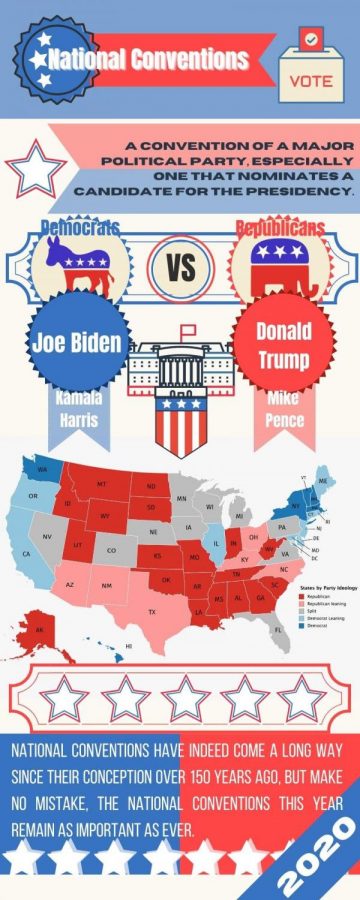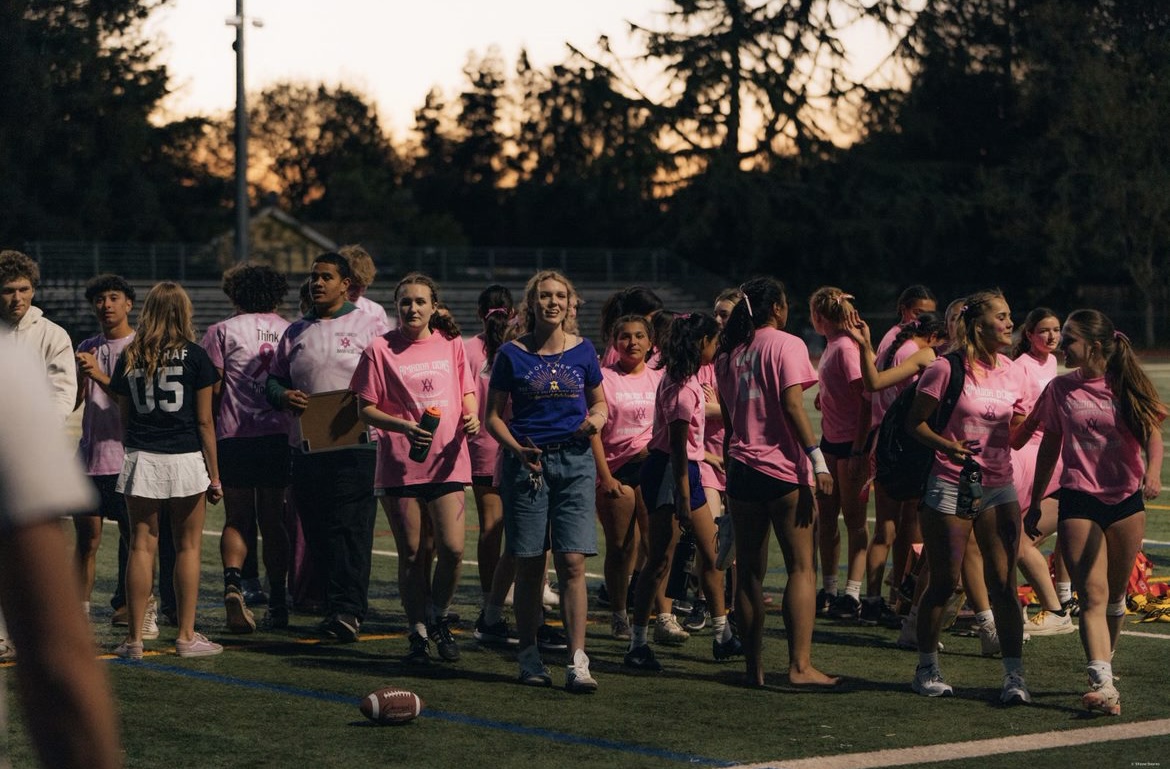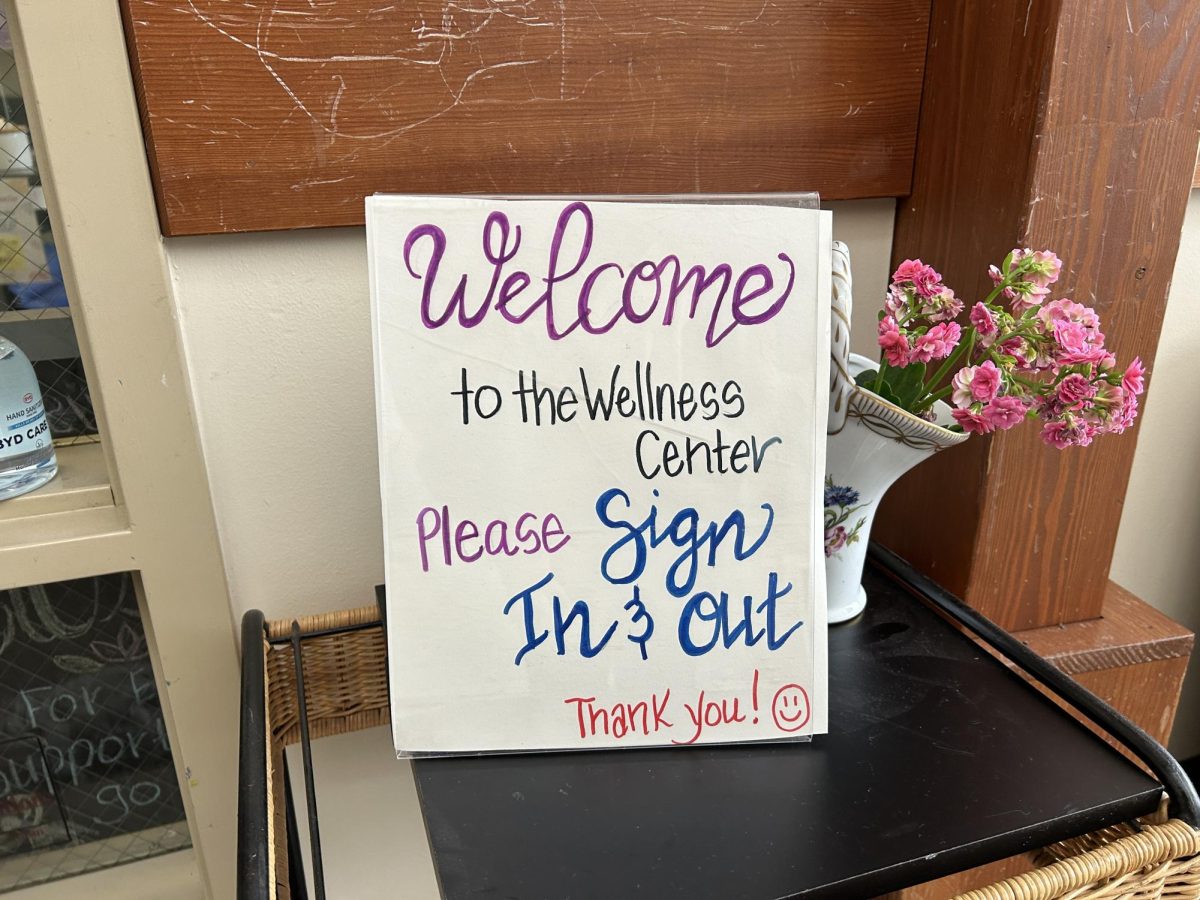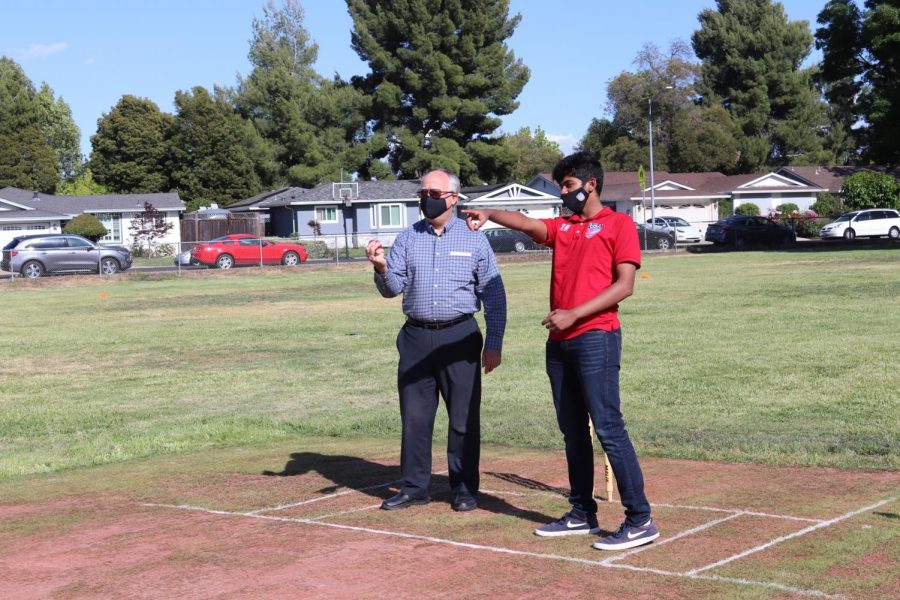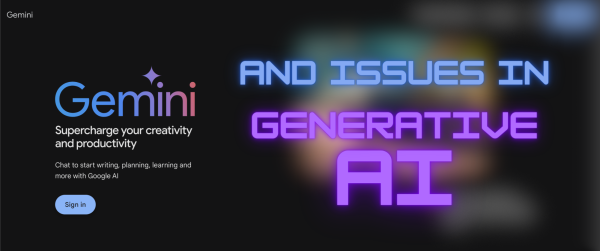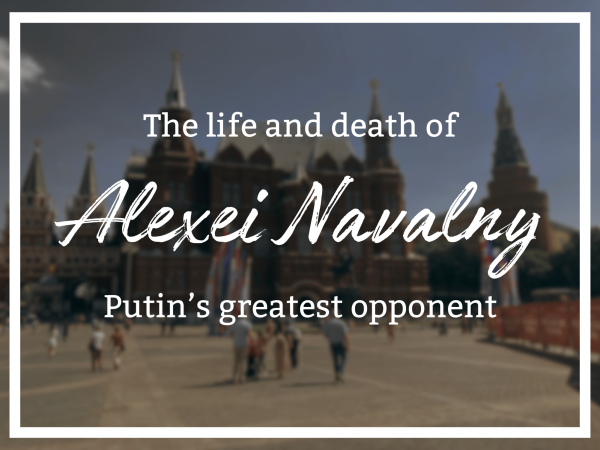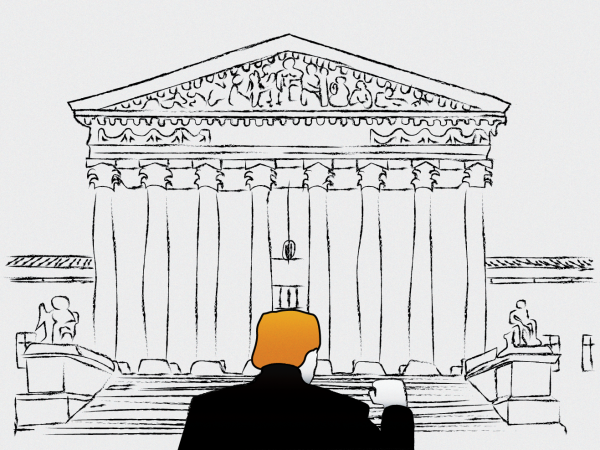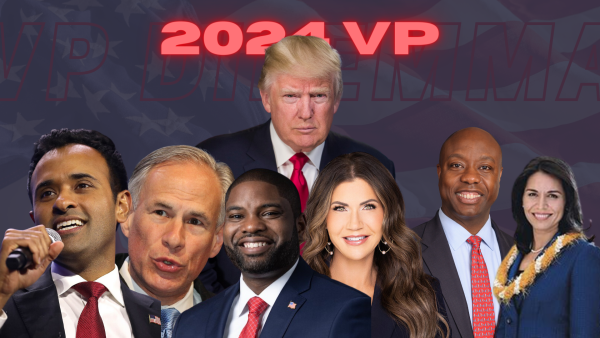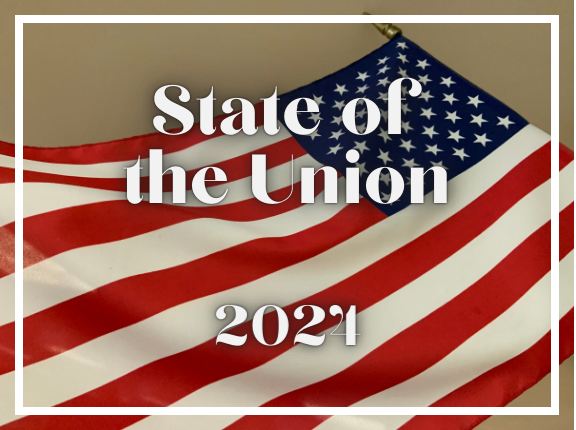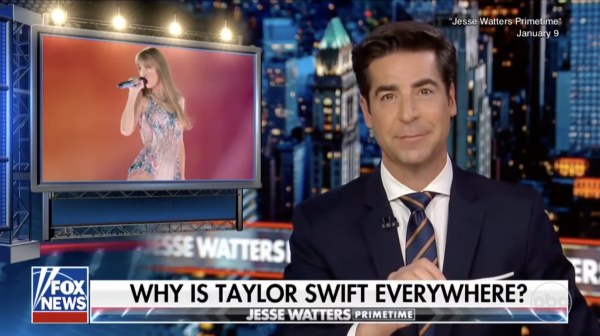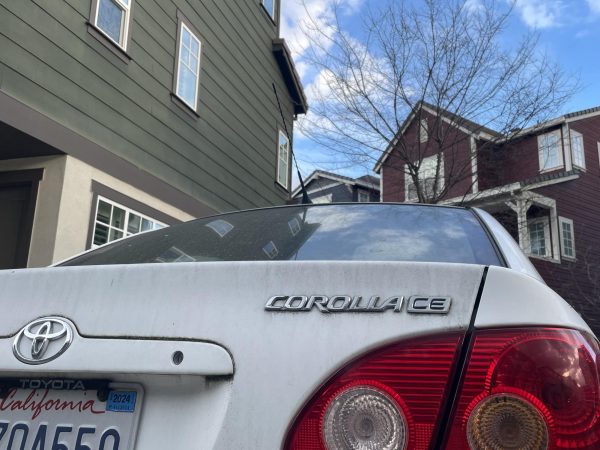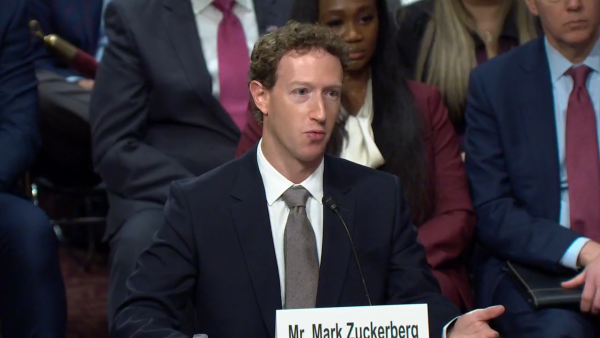What are the national conventions and why are they important?
August 23, 2020
In an unprecedented shift, the 2020 national conventions for both the Republican and Democratic Party have been forced to go virtual in order to adapt to the current pandemic.
With politics looming so heavily on the conscience of our nation, teachers and students alike have tuned in to watch the national conventions.
“This was my first time watching [the conventions] and I think that the speeches given by the presidential candidates and V.P.s were overall really good!” said Jovanni Shen (21’)
The origins of the very first national convention can be traced all the way back to 1832, when they were first utilized by the Democratic National Party to nominate the presidential and vice presidential candidates.
This new political entity was widely viewed as a positive shift, putting more power in the hands of the people and becoming a foundation part of the voting process.
While originally slated to decide a party’s presidential candidate, the rise of the presidential primaries led national conventions to discard their original duties.
National Conventions still maintain their relevance as they evolved throughout history to adapt to their current environment.
Unlike our modern conventions, past conventions have been historically characterized by fiery political debates and contentious speeches.
Nowadays national conventions have shed the political quarreling and in the age of media have adapted to become grand spectacles garnering party support through speeches from popular party figures and introductions to the candidates.
“ I feel like [the convention’s] importance has shifted, they use to be more important to the party structure, but now they take on the role of packaging the politics for the people. In the past the parties had the central role and now they are a way of marketing to the people and getting extra cash and support for candidates,” said Comp Civics advisor Stacey Sklar.
Last week, the DNC even featured performances from renowned artists like Billie Eilish, Common, John Legend, Billy Porter, and more. These artists had the chance to garner political support for the Democratic Party and provide live performances to the viewers watching.
Throughout the convention the themes of unifying America and the importance of strong leadership were repeated many times by speakers and performers alike.
Accompanying the musical performances were speeches and interviews with celebrities within the Democratic Party. Just a few of these recognizable names included Barack and Michelle Obama, Bernie Sanders, and more.
Most important was Joe Biden’s and Kamala Harris’s formal acceptance of their nominations to represent the Democratic Party in the 2020 Presidential Election.
“My favorite part of the DNC was the Roll Call of States when they announced the delegate totals. It showed the diversity of Americans from all 50 plus states and territories,” said AP Government and Politics teacher Samuel Weaver.
This week, during the Republican National Convention, we saw plenty of recognizable names from the Trump family. Speakers included Ivanka, Eric, Donald Jr., and Lara Trump, as well as the president himself, who spoke every night of the convention.
The lineup for the Republicnan Convention wasn’t nearly as star studded as the DNC but we still heard from many well known celebrities including UFC president Dana white.
The RNC also presented many lesser known speakers, including Nicholas Sandman and Patricia McCloskey and Mark McCloskey who helped push the main themes of the RNC.
The RNC themes starkly contrasted with the DNC, as the common thread from the president and speakers alike, was a very chaotic America under a Biden Presidency.
With the DNC and RNC having shifted completely virtual this year, national conventions have indeed come a long way since its conception over 150 years ago.
But make no mistake, the national conventions this year remain as important as ever, especially as the primary election draws near.

